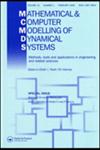基于智能体模型的通用框架使用神经网络
IF 1.8
4区 数学
Q3 COMPUTER SCIENCE, INTERDISCIPLINARY APPLICATIONS
Mathematical and Computer Modelling of Dynamical Systems
Pub Date : 2021-01-02
DOI:10.1080/13873954.2021.1889609
引用次数: 8
摘要
传统的基于智能体的建模大多是基于规则的。对于许多系统,这种方法是非常成功的,因为规则是很容易理解的。然而,对于大型系统来说,很难找到能够充分描述代理行为的规则。一个简单的例子是两个智能体下棋:在这里,不可能找到简单的规则。为了解决这个问题,我们引入了一个包含机器学习的基于代理的建模框架。在一个与强化学习密切相关的过程中,智能体学习规则。作为权衡,需要定义效用函数,这在大多数情况下要简单得多。我们测试了这个框架,以复制著名的Sugarscape模型的结果,作为原则的证明。此外,我们还研究了一个更复杂的版本的Sugarscape模型,它超出了原始框架的范围。通过扩展框架,我们也发现了令人满意的结果。本文章由计算机程序翻译,如有差异,请以英文原文为准。
Using Neural Networks for a Universal Framework for Agent-based Models
ABSTRACT Traditional agent-based modelling is mostly rule-based. For many systems, this approach is extremely successful, since the rules are well understood. However, for a large class of systems it is difficult to find rules that adequately describe the behaviour of the agents. A simple example would be two agents playing chess: Here, it is impossible to find simple rules. To solve this problem, we introduce a framework for agent-based modelling that incorporates machine learning. In a process closely related to reinforcement learning, the agents learn rules. As a trade-off, a utility function needs to be defined, which is much simpler in most cases. We test this framework to replicate the results of the prominent Sugarscape model as a proof of principle. Furthermore, we investigate a more complicated version of the Sugarscape model, that exceeds the scope of the original framework. By expanding the framework we also find satisfying results there.
求助全文
通过发布文献求助,成功后即可免费获取论文全文。
去求助
来源期刊
CiteScore
3.80
自引率
5.30%
发文量
7
审稿时长
>12 weeks
期刊介绍:
Mathematical and Computer Modelling of Dynamical Systems (MCMDS) publishes high quality international research that presents new ideas and approaches in the derivation, simplification, and validation of models and sub-models of relevance to complex (real-world) dynamical systems.
The journal brings together engineers and scientists working in different areas of application and/or theory where researchers can learn about recent developments across engineering, environmental systems, and biotechnology amongst other fields. As MCMDS covers a wide range of application areas, papers aim to be accessible to readers who are not necessarily experts in the specific area of application.
MCMDS welcomes original articles on a range of topics including:
-methods of modelling and simulation-
automation of modelling-
qualitative and modular modelling-
data-based and learning-based modelling-
uncertainties and the effects of modelling errors on system performance-
application of modelling to complex real-world systems.

 求助内容:
求助内容: 应助结果提醒方式:
应助结果提醒方式:


